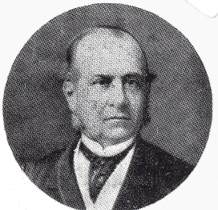Augusto Vera on:
[Wikipedia]
[Google]
[Amazon]
 Augusto Vera (4 May 181313 July 1885) was an Italian philosopher who followed
Augusto Vera (4 May 181313 July 1885) was an Italian philosopher who followed
 Augusto Vera (4 May 181313 July 1885) was an Italian philosopher who followed
Augusto Vera (4 May 181313 July 1885) was an Italian philosopher who followed Hegel
Georg Wilhelm Friedrich Hegel (; ; 27 August 1770 – 14 November 1831) was a German philosopher. He is one of the most important figures in German idealism and one of the founding figures of modern Western philosophy. His influence extends a ...
's theories and translated many of his works.
Life
Vera was born in Amelia in the province ofTerni
Terni ( , ; lat, Interamna (Nahars)) is a city in the southern portion of the region of Umbria in central Italy. It is near the border with Lazio. The city is the capital of the province of Terni, located in the plain of the Nera river. It is ...
. He was educated in Rome and Paris, and, after teaching classics for some years in Geneva
Geneva ( ; french: Genève ) frp, Genèva ; german: link=no, Genf ; it, Ginevra ; rm, Genevra is the List of cities in Switzerland, second-most populous city in Switzerland (after Zürich) and the most populous city of Romandy, the French-speaki ...
, held chairs of philosophy in various colleges in France. He was a philosophy teacher at the Lycée Victor-Duruy
In France, secondary education is in two stages:
* ''Collèges'' () cater for the first four years of secondary education from the ages of 11 to 15.
* ''Lycées'' () provide a three-year course of further secondary education for children between ...
(Mont-de-Marsan
Mont-de-Marsan (; Occitan: ''Lo Mont de Marçan'') is a commune and capital of the Landes department, Nouvelle-Aquitaine, southwestern France.
Population
Military installations
The French Air and Space Force operates the '' Constantin Roza ...
) and subsequently was professor in Strasbourg
Strasbourg (, , ; german: Straßburg ; gsw, label=Bas Rhin Alsatian, Strossburi , gsw, label=Haut Rhin Alsatian, Strossburig ) is the prefecture and largest city of the Grand Est region of eastern France and the official seat of the Eu ...
and in Paris. He left Paris after the coup d'etat of 1851 and spent nine years in England. Attaching himself with enthusiasm to Hegel's system, Vera (who wrote fluently both in French and in English as well as in Italian) became widely influential in spreading a knowledge of the Hegelian doctrine, and became the chief representative of Italian Hegelianism. Citations:
* R. Mariano, ''Augusto Vera'' (Naples, 1887) and ''Strauss e Vera'' (Rome, 1874)
* Karl Rosenkranz, ''Hegel's Naturphilosophie und deren Bearbeitung durch A. Vera'' (Berlin, 1868)
Without any marked originality, his writings are distinguished by lucidity of exposition and genuine philosophic spirit. In 1860 Vera returned to Italy, where he was made professor of philosophy in the Royal Academy of Milan. In the following year, at the invitation of Francesco de Sanctis, he was transferred to Naples as professor of philosophy in the University of Naples
The University of Naples Federico II ( it, Università degli Studi di Napoli Federico II) is a public university in Naples, Italy. Founded in 1224, it is the oldest public non-sectarian university in the world, and is now organized into 26 depar ...
. His ''Prolusioni alla Storia della Filosofia'' and ''Lezioni sulla Filosofia della Storia'' were connected with his professorial work, which was specially devoted to the history of philosophy and the philosophy of history. He kept his teaching position until his death in Naples.
Philosophy
It was during his studies, with his cousin in Paris, that he came to know about philosophy and through them he acquired knowledge of Hegelianism and it culminated during the events of the 1848-49 French revolution. In England he continued his studies of Hegelian philosophy. During his years in Naples, he would maintain relationships with the Philosophical Society of Berlin, which originally consisted of Hegelians, and kept up to date with both the German and the French Hegelian literature. As a teacher, he undertook the translation of Hegel's ''Introduzione alla filosofia'' (Introduction to philosophy) in French. A lot of his work on neo-Hegelian theories were undertaken with Bertrando Spaventa. Some works see the Italian Hegelian doctrine as having led to ItalianFascism
Fascism is a far-right, authoritarian, ultra-nationalist political ideology and movement,: "extreme militaristic nationalism, contempt for electoral democracy and political and cultural liberalism, a belief in natural social hierarchy an ...
.
Works
Among his works may be mentioned: * ''Introduction à la philosophie d'Hégel'' (1855; 2nd ed., 1865) * ''Problème de la certitude'' (1845) * ''Le Hégelianisme et la philosophie'' (1861) * ''Mélanges philosophiques'' (1862) * ''Essais de philosophie Hégélienne'' (1864) * ''Strauss, l'ancienne et la nouvelle foi'' (1873), an attack upon Strauss's last "confession," written from the standpoint of an orthodox Hegelian * A comprehensive work in Italian, Il Problema dell' Assoluto (Naples, 1872–82). His English works are: * ''Inquiry into Speculative and Experimental Science'' (London, 1856) * ''Introduction to Speculative Logic and Philosophy'' (St Louis, 1875) * A translation of Bretschneider's ''History of Religion and of the Christian Church''. He also published translations into French with commentaries of Hegel's works: * ''Logique de Hégel'' (Paris, 1859; 2nd ed., 1874) * ''Philosophie de la nature de Hégel'' (1863–65) * ''Philosophie de l'esprit de Hégel'' (1867–69) * ''Philosophie de la religion de Hégel'' (1876–78, incomplete).References
{{DEFAULTSORT:Vera, Augusto 1813 births 1885 deaths People from the Province of Terni Italian philosophers